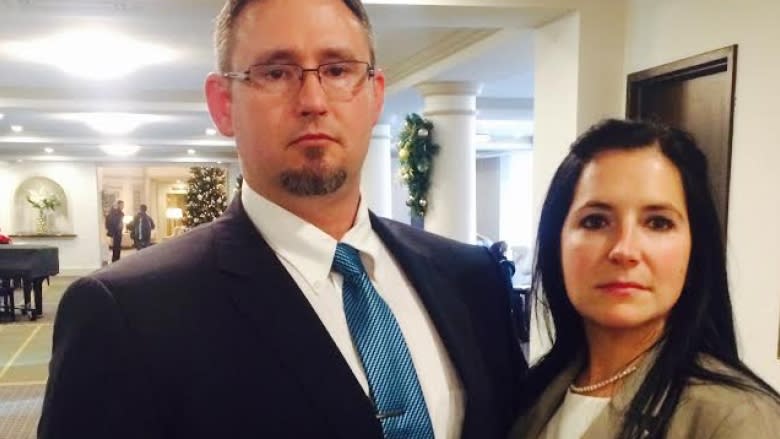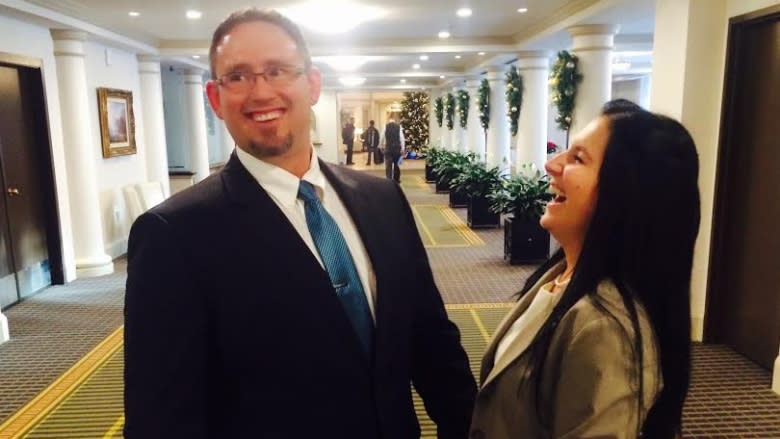Alberta health disciplines board may not hear paramedic's licence appeal
A hearing to appeal a controversial decision by the Alberta College of Paramedics may be over before it begins.
Mike Lacourciere appeared before a provincial board Wednesday to argue that he should not have been denied his paramedic registration (commonly known as a licence) for refusing to give the college access to personal, detailed health information.
The college asked for the information after Lacourciere revealed during his application for renewal that he had sought treatment for post-traumatic stress disorder.
Instead, he sent a note from his family doctor and an excerpt of a letter from the worker's compensation board, which had both cleared him to go back to work.
The college refused to renew his licence.
Lacourciere has now appealed to the Health Disciplines Board, the government body that oversees the college.
During testimony Wednesday, after the hearing was opened to the public, the lawyer for the college argued that the board does not have jurisdiction to hear the case, because Lacourciere failed to file his appeal within a 30-day time limit.
"It is incumbent on you to be careful, to be sure," Blair Maxston argued on behalf of the college. He cautioned that the board's decision on whether or not to hear the case has the potential to affect similar cases across the country.
"People are going to be looking at this decision — paramedics, lawyers, other colleges ... it has to be solid," he said. "That's a precedent that goes beyond today's proceedings."
The legal representative for Lacourciere, Bruce Barry, argued that is exactly the reason the board should hear the case.
Barry said while it's likely first responders have suffered from mental health problems for decades, it's only recently that those issues have come forward and required policy.
He wants his client to have a chance to give evidence and explain his side of the story, including why it took him longer than 30 days to appeal the decision.
"Just because someone had a mental health issue, doesn't mean they can't be a paramedic," said Barry. "It's not like my client was off somewhere, pretending he was a duck. He phoned the college and said — this is what's happening and here's what I'm doing about it."
Lacourciere said even if this hearing doesn't go forward, he will try to find a way to have his case heard.
"It seems like such an injustice that it is such a small technicality that could stop this process from going forward," he said.
"They keep talking about protecting the public. You cannot tell me that first responders who are afraid to admit they need help are delivering the best possible patient care. They cannot.
"No matter what, I'm not stopping here."
After hearing arguments from both sides, the board adjourned for deliberations late in the afternoon Wednesday. They're expected to issue a written decision on the jurisdiction question in the coming weeks.



